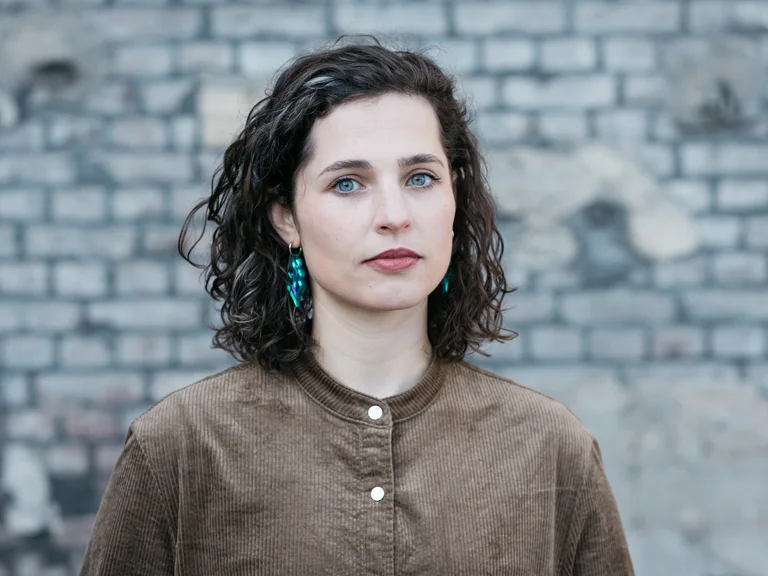
Listening to music in a new way
Concert programme combining high culture, pop and industrial halls
Anna Chernomordik is a music dramaturge at the Ruhrtriennale. In our Festival Stories series, she discusses the 2025 concert programme, exploring the encounters between high and pop culture it contains, the ways in which venues transform the listening experience, and the importance of openness in achieving an intense musical experience.
What was the starting point for developing this year's concert programme at the Ruhrtriennale, and how does it differ in terms of content and atmosphere?
What does a rock legend write for the organ? What does an Oscar-winning film composer do with a band of homemade instruments? And why does a famous pop musician have an irrepressible passion for analogue synthesizers? This year, we have many guests who have mastered the fundamentals of 'high culture' and achieved great success in pop culture. From there, they delve into the obscure and appeal to a wide range of people, from curious explorers to those who never tire of their favourite musical classics.
What role do space, architecture, and acoustic characteristics play in the programming of the Ruhrtriennale?
The industrial halls, with all their acoustic peculiarities, form an integral part of the festival's identity. They set and challenge aesthetic standards. Rave culture originated in such spaces, and composers such as Maurice Ravel were also inspired by industrial landscapes. The turbine and machine halls were not built for the arts. They are workspaces, and their gigantic dimensions make you feel tiny, much like being in a place of worship. It is no coincidence that the halls of the Ruhrtriennale are often referred to as cathedrals of industrial culture. This 'putting oneself at the service of art', which involves the audience as well as the artists, makes the experience all the more intense because it requires a collective effort.
How does our perception of music change when it fills a space or resonates through architecture?
It becomes more physical. Perhaps because careful listening is more difficult today, this special setting helps us perceive music more consciously.
To what extent does the music programme challenge established listening habits, and why is that exciting?
Examples include unusual mixes of styles, such as Rave-L Party, and the duration and development of a piece, such as 124 Years of Reverb. This piece is so unfamiliar to the two organists that they must cool their overworked hands in ice water periodically. OSMIUM, the supergroup led by film music composer Hildur Guðnadóttir, has broken away from traditional song structures through improvisation; however, a continuous rhythm helps listeners navigate the music. Relaxed Performances are also particularly exciting: the aim is to break down as many invisible barriers as possible. All reactions are initially accepted – especially for the benefit of those who would not be able to attend a concert at all without this freedom.
„Openness is a skill that needs to be developed. Fortunately, a festival like this makes that easier to achieve.“
What do you think helps someone who wants to explore music genres they have never heard before?
I grew up with a lot of mental barriers when it came to music. When you learn a classical instrument, the training often teaches you that music can be divided into categories of right and wrong, real and fake, valuable and worthless. However, openness is a skill that needs to be developed. Fortunately, a festival like this makes that easier to achieve. Not only can you attend several events at once, but it's also worth taking a little more time to explore the venues and consciously take the seemingly obscure paths to get there. In Bochum, you can simply sit outside and enjoy the atmosphere in the festival centre. This year, there is a generous free outdoor programme that invites you to linger before and after the performances (highly recommended!), even if you are on your own. As with any live experience, make sure you turn off your mobile phone and enjoy the exceptional atmosphere.
What do you hope visitors will take home with them after a Ruhrtriennale concert?
That the experience will resonate – in the best sense of the word. As David Lang once said, he is happy when people suddenly think weeks or months later, 'Now I understand!' or even, 'I completely disagree!' Then we will have achieved our goal.
